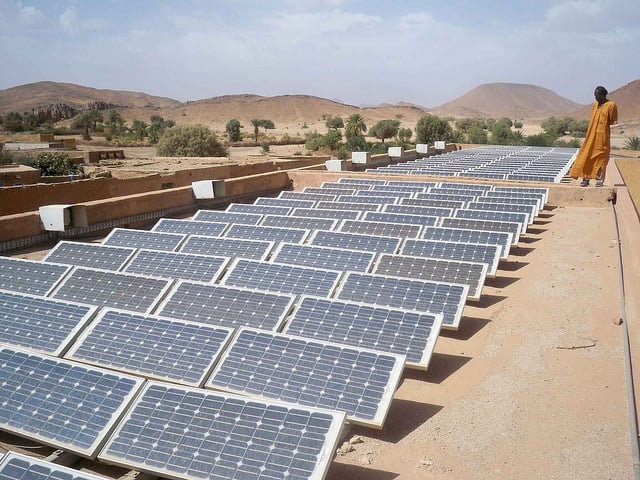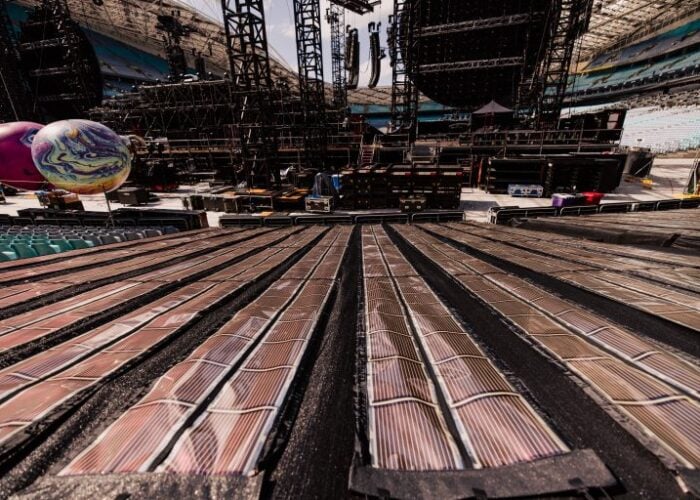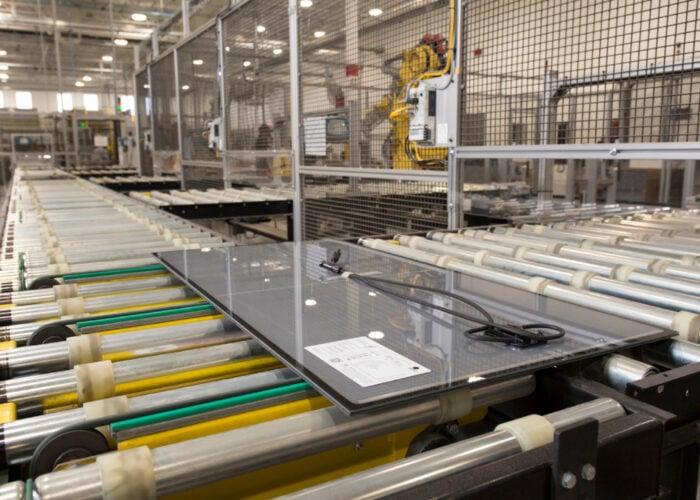
A panel of development finance institutions and project developers at the annual Africa Energy Forum on Friday discussed how they are shaping the continent’s emerging energy sector; in taking on the risk that commercial banks typically will not.
It was highlighted how necessary development banks are in a fragile emerging market to get things moving off the ground.
Try Premium for just $1
- Full premium access for the first month at only $1
- Converts to an annual rate after 30 days unless cancelled
- Cancel anytime during the trial period
Premium Benefits
- Expert industry analysis and interviews
- Digital access to PV Tech Power journal
- Exclusive event discounts
Or get the full Premium subscription right away
Or continue reading this article for free
Diana Noble, CEO of development bank CDC Group, characterised the mandate of a DFI as “keep the risk moving” and to “keep filling the gaps that commercial capital will not”. This can be done via entering the project development cycle earlier, taking on the mandates of ‘harder’ countries or engaging in more equity than debt or thinking about distribution.
Conversely, Azure Power West Africa’s David Ladipo had kicked-off the session by asking not how, but why DFI’s are still shaping Africa’s energy sector; as market-based solutions with commercial financiers is the ultimate goal.
He however conceded that “[W]e have to welcome support that DFI’s bring to the power sector in Africa.”
Despite this, Ladipo also criticised DFI’s for their “institutional mind-set” which he believed led them to focus far more than commercial banks on “perfecting the allocation of risk within key project contracts” as opposed to getting down into the actual mechanics of the projects.
Increasing the bankability of projects
Noble also emphasised the key to ending up in viable projects was to find local partners with expertise on the ground, whilst using private equity funds to push projects forward. “Our role is to be a catalyst for people to get things done,” she said.
In a similar vein, Torbun Huss of Danish development bank IFU identified this sentiment as one of the keys to surmounting the overarching problem of Africa’s energy sector of a lack of bankable projects.
“The problem is that projects seem to take a long time to develop and are very expensive. These issues need to be addressed. The leads and the capital are there but we are still lacking the number of projects required.
We need to take a step back and engage more in the developmental phase to establish partnerships with local and international developers and share the risk.” Torben Huss, executive VP of IFU.
Further adding to the lack of bankable projects is the mounting expense: the longer projects are drawn out the more costly they become. Scatec Solar’s Raymond Carlsen said that reducing costs could be done via thinking more about guarantees. “Sub-Saharan Africa has less than 10% defaults, so the guarantees provided will not be so much at risk as one might think,” he added. The panel emphasised that DFI’s can aid in this process by engaging earlier in the developmental phase. “The core of the problem is also the political risk aspect,” said Huss. “Banks close to the government in the region should take a hand in these problems to give investors more comfort.
Relationship between banks and government
However, Christopher Marks of the African Development Bank noted how this was easier said than done. “There is no easy solution,” he said. “We have pressures to maintain project margins and ratios just like any other financial institution – that is the practical reality. A big push for the bank is to move away from generation projects – the bread and butter of a project finance institution – and transition more into harder areas and work with distribution companies so the developers have institutional partners they can work with.”
Marks also supplemented Huss’ point about the political risk element by highlighting that governments in Africa generally “do not have the capacity to be able to help” citing it as a “highly pertinent” and “extremely challenging” issue.
“We are very close to such shareholders. The intimacy brings a whole new complexity to the relationship. Intimacy allows for discussion which may or may not facilitate decision making. We play a sympathetic, near-term supportive role to the government. Often through projects we are engaged in capacity building.”
Whilst Africa’s energy sector is still only at a stage to beckon financial aid from development institutions, the good news is that investment as a whole is looking up.
“[Our] investments in Africa surpassed 40% of annual commitments and our renewable energy portfolio is to grow tenfold,” said Elizabeth Littlefield, president and CEO of the Overseas Private Investment Corporation (OPIC). “We are focussing not just on megawatts but focussing on access too,” she added.
For more issues such as these, download our PV Tech Special Report: Scaling up solar in Sub-Saharan Africa, a comprehensive guide to the off-grid, micro-grid and large-scale sectors and the financial models that can underpin their successful growth. The guide is available to download for all our PV Tech members and our Essential Membership is completely free of charge.






